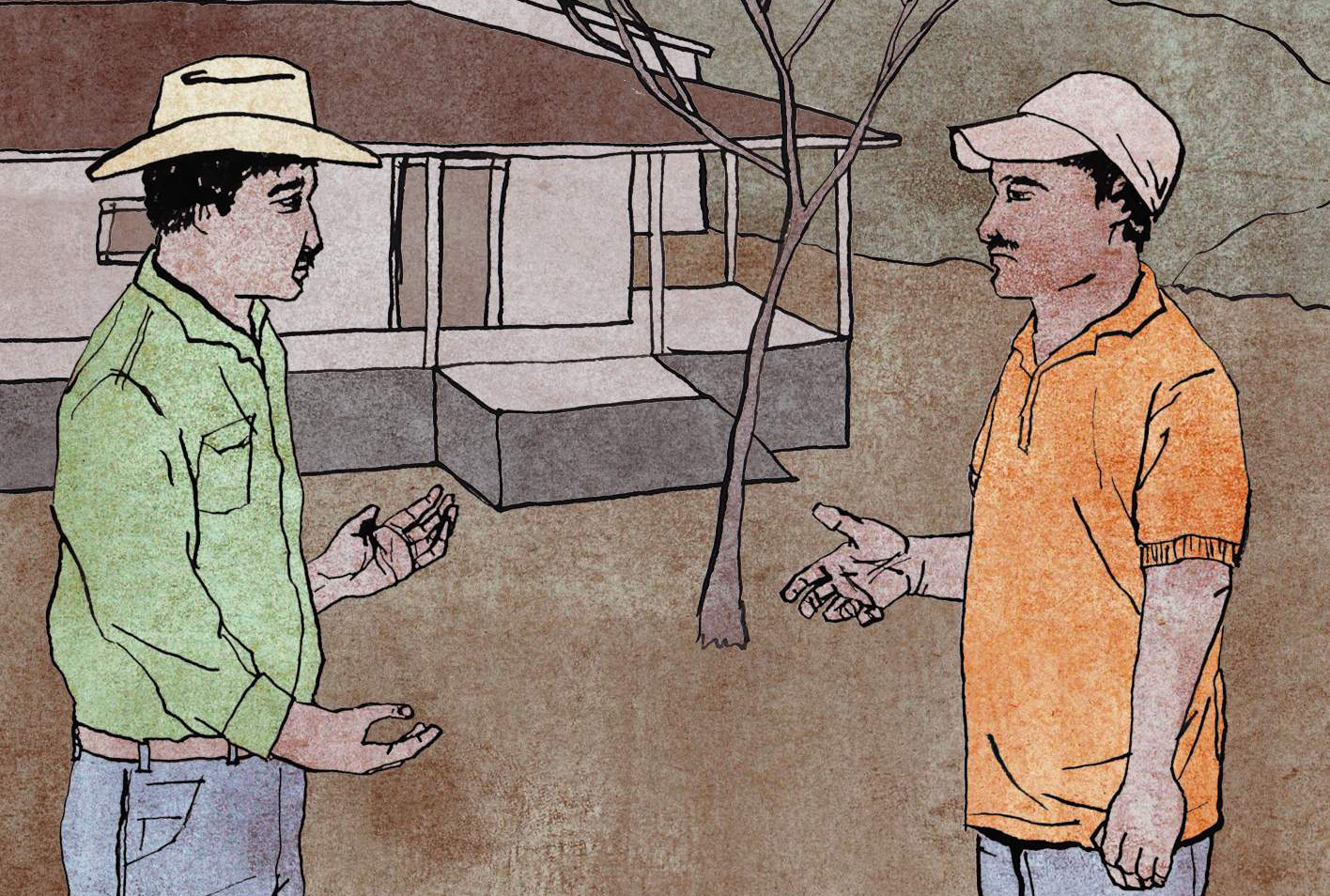NOTE: This Story Was Originally Published September 2, 2016
Noel and Alcaldio Martinez are two brothers in a family of 15. Noel is number 7, Alcaldio number 3. The brothers are close and talk on the phone almost every day. Lately, because of persistent drought in their home country of Honduras, they’ve been having the same conversation over and over again: whether it’s better to leave or better to stay in Honduras.
So far they’ve made opposite choices. Alcaldio stayed, Noel left.
LISTEN: “Drought Migrants”
I first met Noel Martinez at work in New Orleans, remodeling a basement apartment in Broadmoor, a neighborhood some thought better to abandon after Hurricane Katrina. He and three other men were working on a day when most people went home early because of flooding.
A river of moisture from Central America that meteorologists nicknamed the “Mayan Express” had been hosing down New Orleans with rain. When I asked why the men opted to work in such terrible weather, they told me they don’t rest for this kind of weather. Noel chimed in from the stairs.
“[In Honduras], there isn’t work because there isn’t enough rain,” Noel spoke with me in Spanish about his home country.
Not enough rain, for a long time now. That’s why he’s here.
Noel and his brother Alcaldio grew up in a tiny town in the Central Honduran state of Yoro, surrounded by big pine tree forests. Every year, people there wait for the May rains to plant their fields and feed their animals. And when the rains do come to Yoro, people say it rains so hard, it rains fish. They post cell phone videos online to try and prove it really happens. Children celebrate in the bright red mud holding tiny fish in their hands.
But for the last four years and counting, it’s been abnormally dry—and not just in Yoro. Across Central America, less rain has been falling later in the season. High temperatures have been breaking records. Staple crops like corn and beans and exports like coffee and bananas have been failing from fungus, pests and drought.
The pattern is precisely what climate change models predict for the region as global temperatures rise. It’s what drove Noel and Alcaldio to make different bets—to cross the border to the U.S. in search of work, or to wait out the weird weather and drought in Honduras.
Continue reading this story at WBEZ »
###
This story was produced by WBEZ, Chicago’s NPR news station. And be sure to check out more stories in WBEZ’s “Heat of the Moment” series, which explores the impacts of climate change on our everyday lives. Support for “Heat of the Moment” is provided by The Joyce Foundation, which works to improve quality of life, promote community vitality and achieve a fair society.


